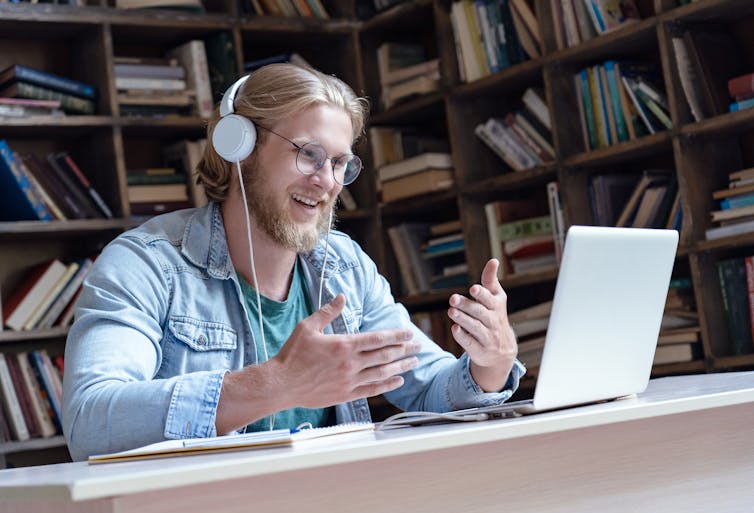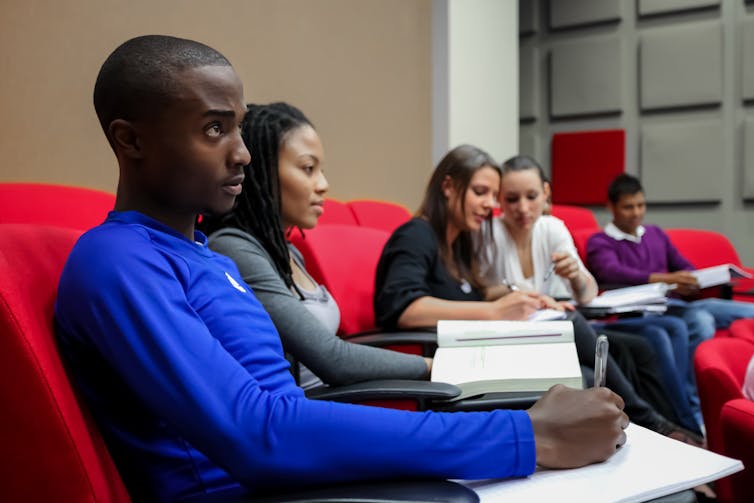Source: The Conversation (Au and NZ) – By Alwyn Louw, Vice Chancellor, Torrens University Australia
The importance of higher education for the growth and development of society is generally accepted. But openness and access to education for all is essential to maximise its benefits. Leaders in higher education must be ready to examine what it will take to achieve this.
What do we mean by open access? Higher education should provide access for as many people as possible to reach their full potential as individuals. It is a priority in the United Nations Sustainable Development Goals because inequality is emerging as a key threat to societal development.
Openness in education depends on the democratisation of societies and, with it, the democratisation of information and knowledge. Nobel Prize-winning Indian economist Amartya Sen described development as freedom. That is, development that enhances meaningful and quality living.
In this context, openness broadly refers to flexible, fair, welcoming and unprejudiced access to higher education. Openness of access requires adherence to basic purpose values – the promotion of self-regulated life-long learning, self-determination and personal agency. Enabling citizens to realise these aspirations contributes to strengthening our democracy.
So what will it take?
Changes in mindset will be non-negotiable for open access. Removing barriers, challenging assumptions and finding innovative means to ensure access and support are important starting points.Torrens University and Think Education, like other institutions such as ANU and Swinburne, recently announced the Australian Tertiary Admissions Rank (ATAR) will no longer be the only thing that determines students’ entry into university. We now have alternative entry pathways. Systematic support and monitoring to ensure student success will be critical.
Read more: Students are more than a number: why a learner profile makes more sense than the ATAR
Higher education openness should also be understood in terms of the choice and flexibility it allows individuals. Service delivery needs to respond to personal circumstances and learning and support needs. It enables people to choose between different types or modes of access, geographical locations, synchronous (learning with others at same time) or asynchronous (learning individually in one’s own time) activity – in timeframes that suit their circumstances.
This is why online or hybrid learning is essential. At Torrens University, students can choose face-to-face or online study – or both – to undertake their studies.
Importantly, online offerings must never compromise on quality. Students studying remotely must not be worse off than students learning face-to-face.

Offering choice through innovation
To help secondary students consider their options, higher education providers pulled together a series of virtual expos this year. Technology enabled these expos to reach almost 20,000 students across Australia and New Zealand. These expos showed how the higher education sectors in Australia and New Zealand can adapt, innovate and collaborate to ensure no one lacks choices.
Read more: New learning economy challenges unis to be part of reshaping lifelong education
It is important to understand that the ideas of openness and inclusive learning environments do not refer to having no norms or boundaries. Openness or open access to higher education depends on the values, ideology and practices of each institution. Equally important are regulatory and societal systems that provide the freedoms and incentives for institutions to develop complementary approaches and capacity.
In South Africa, for example, the higher education and school systems were transformed to open opportunities for all. Policies to increase participation among disadvantaged communities included financial and academic support throughout the education journey.
A set of enabling values and mechanisms will be critical. This means putting in place ideology that gives people the right and the means to participate. It involves creating an ethos that ensures every person is welcome in the education system.

A full spectrum of support services will be just as important. But why? And what will they be?
Well, while you may open up education for all, remote locations as well as lack of resources in secondary schools could be barriers. So you need arrangements in place to ensure access. Adjustments to entrance requirements and financial support might also be needed to deliver on the promise of education for all.
Read more: Poorer NSW students study subjects less likely to get them into uni
Time to come down from the ivory tower
In higher education, the institutionalised roles of knowledge creators and education providers require them to lead and support societal development through the creation of knowledge that supports innovation. This equips citizens with the social and human capital they need to prosper.
This advancement of human well-being will necessitate breaking down existing barriers between higher education and society. It requires coming down from the ivory tower where a monopoly over knowledge, knowledge creation and distribution has been institutionalised. It means reviewing entrance requirements, policies and procedures that result in exclusion.
Read more: After coronavirus, universities must collaborate with communities to support social transition
This is not to suggest it will be straightforward.
Higher education providers function in a complex and dynamic environment. Each institution will have to carefully choose the focus and scope of its activities. Institutions will have to follow up with strategies, systems and processes that open their boundaries to interaction with industry, society, decision-makers and government, while providing for individual choice and participation.
At Torrens University, Think Education and Media Design School, for example, we collaborate with industry from the outset as we build our curricula. This engagement continues throughout the student journey – through work-integrated learning, our “success coaches” and teaching staff who are industry leaders in their own right.
Openness is therefore not only a matter of access to higher education. It is an inclusive process of opening entrance opportunities, followed by a purpose-driven support environment that aims to prepare successful graduates to contribute to society.
– ref. Open access to higher education is about much more than axing ATARs – https://theconversation.com/open-access-to-higher-education-is-about-much-more-than-axing-atars-147447






